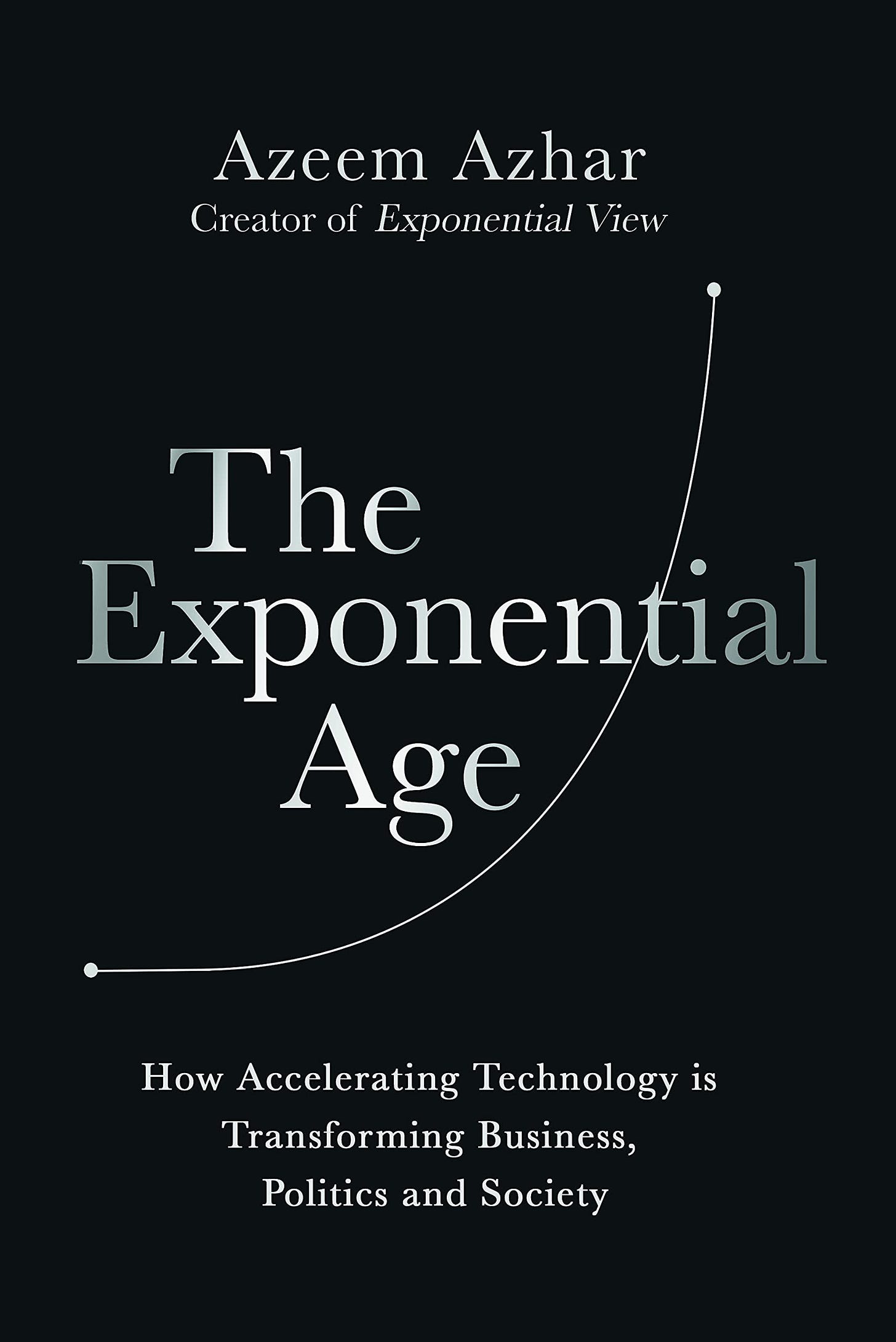So much is happening in our world today. The Ukrainian crisis of course has taken center stage. Gas prices are soaring and so are housing costs. The long-predicted pandemic after effect in terms of mental health issues is starting to take shape.
I just returned from a West Coast swing to four cities. What I witnessed was pretty sobering, particularly as it relates to the rampant homelessness we are experiencing in America.
For perspective in terms of all of what’s swirling around, I always turn to books. To this point, I have to say that my current stash of reads runneth over.
The true genesis of my intellectual proclivities came during my undergraduate days at The Ohio State University. As a Sociology major, I developed an insatiable curiosity about how life works. I loved to critically think about pressing issues facing our world through the world of books.
So here are the three that I am currently immersed in at the moment:
The Exponential Age: How Accelerating Technology Is Transforming Business, Politics, and Society by Azeem Azhar
The rapid changes taking place in our world are mind altering. Accordingly, I am always seeking new perspectives that allow me to effectively pivot amid these transformative shifts.
It’s for this reason that I turned to Azhar’s book ‘The Exponential Age.” As one of the world’s first Blockchain and Digital Economy journalists, I have built a fervent interest around emerging digital economy trends impacting our world. It’s always interesting to me to examine where we’ve been, why we’re here and where we’re going in terms of the highway of our future.
In “Exponential Age” Azhar argues that we are living through a period of unusually fast social change that is being ignited by sudden technological advances. As he notes in the book:
“The rapid transformation of society in the early twenty-first century is the focus of this book. It is a book about how new technology is getting faster. And it tries to explain the effect this acceleration is having on our politics, our economies, and our ways of life.”
He goes on to assert that it is not a pessimistic book in terms of the impact of the technologies he’s describing. Rather it highlights the importance of human adaptability. He asserts:
“When rapid technological change arrives, it first brings turmoil, then people adapt, and then eventually, we learn to thrive.”
Azhar is the founder and curator of Exponential View, Britain's leading platform for in-depth tech analysis. It is read by over 45,000 people from around the globe. His popular podcast has featured the likes of Yuval Noah Harari, Reid Hoffman and Tony Blair. The founder of several cutting edge tech companies, Azhar is a member of the World Economic Forum's Global Futures Council, a senior advisor at PwC, and a contributor to a number of publications including the Financial Times, Prospect and the MIT Technology Review.
If like me, you endeavor to remain abreast of emerging trends in today's rapidly morphing digital economy then this book is for you.
Putin’s Playbook — Russia’s Secret Plan to Defeat America by Rebekah Koffler
I am of the belief that the Ukrainian crisis is (in Nassin Nicholas Taleb parlance) is one of those “Black Swan” moments that will radically alter the world. Moreover, according to Putin Playbook author Rebekah Koffler, Putin is a very dangerous man that America has grossly underestimated.
Koffler is a Russian-born U.S. intelligence expert who worked at the highest levels of the Defense Intelligence Agency and the Central Intelligence Agency's National Clandestine Service. She briefed the Pentagon, the White House, and NATO on Russian affairs.
“As a Russian-born American citizen, I grew up behind the Iron Curtain and, in an unusual twist of fate, became a U.S. intelligence officer,” she notes in her book. In a eye-opening pronouncement she offers this:
“I want to warn Americans how unprepared the U.S. government bureaucracy is to deal with Putin’s playbook and how unaware it is in general that the playbook exists.”
This book has rivers of deep and sensitive intelligence as evidenced by a number of sentences and paragraphs that were blotted out. In the books introduction, she warns the reader of this fact:
“ The Defense Intelligence Agency and Central Intelligence Agency conducted an extensive prepublication review of Putin’s Playbook and redacted significant portions of the typescript. The author strongly disagrees with these redactions as unnecessary and unjustified but has complied with them. The blacked-out portions of what follows are the result of these redactions.”
I must admit that I know very little about Russia. Yet, I have a number of friends who are either Russian or Ukrainian living here in the states. It should also be noted that my erudite brother David took Russian in high school, a move that I never understood given the complexities of Russian cyrillics vocabulary.
This book is very well researched and interesting, one that maintains my attention throughout. Koffler sums it up with this:
“Misunderstanding Russia and its president, Vladimir Putin, is dangerous. Russia is not merely intent on interfering with our elections. Russia is determined to weaken the United States and defeat us—if necessary, by using military force. This is Putin’s playbook.”
Market Urbanism— A Vision for Free-Market Cities by Scott Beyer.
As some of you know, I have an insatiable love for cities. As a former Urban Journalist, I spent many years enmeshed in the social dynamics of how cities work, function, and tick. Moreover I love how people interact with built environments.
Accordingly, I’ve long followed the work of Scott Beyer whose journey is captured in his new book “Market Urbanism: A Vision for Free Market Cities”
So what is Market Urbanism? Beyer says that it is the intersection between free-market policy and urban issues. At a deeper level, it is the use of classically liberal ideas for delivering solutions to city problems.
During my most recent travels, I got deeply entrenched in Beyer's book imbibing his perspectives on esoteric topics like zoning, urban growth boundaries, and parking minimums. He also offers a profoundly important look at housing and transportation issues that are currently bedeviling many city leaders post pandemic.
He cites the former as the biggest issue facing America today. I heard tales of this during my travel stops in San Diego and Las Vegas. One Lyft driver I rode in Vegas tearfully told me that with the heavy in-migration of Californians to the area, he and his family were facing a 40% rent increase in coming months.
What I like about Market Urbanism is that it is grounded in practical realities facing everyday Americans. The material for Beyer’s book, in fact, is based on a 3-year cross-country trip across America where he lived in thirty of America’s most significant cities for roughly a month studying U.S. urban issues. Needless to say that I’m jazzed about reading this book.







